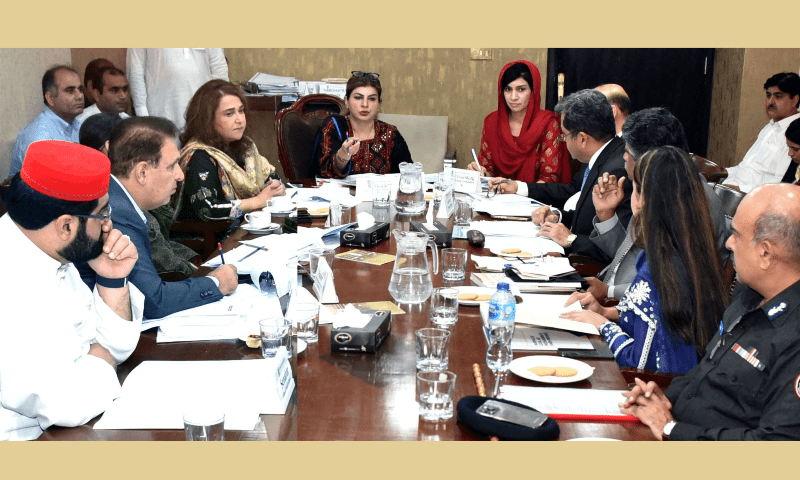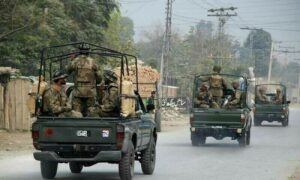ISLAMABAD: The Senate Functional Committee on Human Rights on Wednesday expressed concerns over a rise in crimes against women and children in Sindh, with a zero per cent conviction rate in such crimes alarming the panel.
In a meeting at Parliament House, Committee Chairperson Senator Samina Mumtaz Zehri was also irked by the absence of the Sindh police chief, who was supposed to brief the panel on the important issue.
She said the IGP’s absence was a serious violation of the rules, as he should have been present to addressing the critical issues related to the growing number of cases of domestic violence, rape, murder, and other crimes in the province.
She said the committee’s priority was to create a safer society, but despite repeated reminders, the IGP had still not managed to attend the meeting.
Human rights committee alarmed by zero per cent conviction rate in Sindh, poor prosecution
During the briefing, officials informed the members that complaints could be lodged by calling the helpline 1715 at the IG office.
Once a complaint is reported, the officer concerned promptly responds. The committee was also briefed on the Zainab Alert Response and Recovery Agency (Zarra) that had made the complaint process easier for the public. The members stressed the importance of raising public awareness and suggested having a media representative to disseminate crucial information.
Senator Zehri said people did not report such cases because of the fear of courts and the police, adding that in domestic violence cases, abused women often had to remain with their abusers, enduring life-threatening conditions.
According to the secretary of the human rights ministry, the reporting of such cases is often lower in rural areas. The official said the provinces did not share data, which weakened the overall mechanism.
The chairperson, while acknowledging the statement, claimed that power often resided with the ‘jirgas’ in those regions, adding that if the police chief did not consider these issues important then they could not be addressed either.
Of the 1,058 cases, 985 were still pending, and it was necessary to identify where things had gone wrong. She highlighted that incidents of rape were occurring in seminaries in Sindh, but no action was taken against the responsible.
She stressed the “significant issues” with investigations and prosecutions, claiming prosecutors often sided with the criminals, which showed there was a need for proper training.
She also inquired about the security mechanism in Sindh, particularly in Karachi. She discussed in detail the issues related to child marriages and the actions taken to put an end to this iniquity. The officer concerned informed the panel that they had implemented restraints on child marriages and, through certain preventive measures, reduced the number of cases.
The chairperson recommended that the department must share the data with the ministries and provide proper training to the staff. She highlighted parents often did not report rape cases because of societal judgment. She also advocated therapy sessions for the rape survivors to overcome the trauma.
The committee also lamented the lack of speed limit signs on the roads. The chairperson said that road accidents were mainly due to illegal licences and criticised irresponsible behaviour on the roads. She recommended proper training for constables and the installation of traffic signs in Sindh.
The traffic DIG said motorcyclists made up for the most casualties in road accidents as they did not wear helmets or had rear-view mirrors installed, both of which contribute to accidents.
He added that they were currently working on resolving this issue.
Additionally, fines for drunk driving were reported to range from Rs500-700. The chairperson asked for the list of fines and requested to make them strict.
Published in Dawn, September 12th, 2024





